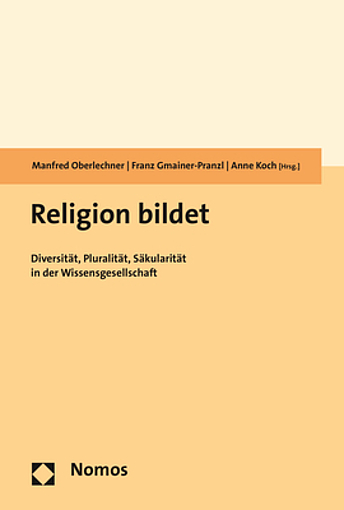englischReligion is a contested discursive field in which resources, belonging or exclusion and supremacy in relation to values are negotiated. Diversification processes and religious pluralisation during the alleged return of religion have re-raised the questions of how religion should be interpreted and how accessible it is. As a contribution to intersectionality research, this publication analyses how and in what interest new interfaces are being formed between religion, gender, origin, class and the nation. Its focus lies on educational processes as forms of socialisation, places of learning and reflexive change in religion. It aims to provide a forum for analysing and finding solutions to problems in ‘post-secular’ societies in Western Europe, which are being challenged by discussions on secularism, integration, how they deal with their history and liberal constitutional states.
With contributions by
Julika Bayer, Bettina Brandstetter, Lea Braun, Matteo Carmignola, Maria Fürstaller, Franz Gmainer-Pranzl, Magdalena Habringer, Assia M. Harawazinski, Evelyn Reuter, Sarah Jahn, Ramona Jelinek-Menke, Anne Koch, Thomas Krobath, Martin Jäggle, Karsten Lehmann, Doris Lindner, Torsten Mergen, Manfred Oberlechner, Karin Peter, Mizrap Polat, Martin Rötting, Sarah Tran-Huu.
Religion ist ein umkämpftes diskursives Feld unserer Gesellschaften, in dem Ressourcen, Zugehörigkeit bzw. Ausschluss und Vormachtstellung in Bezug auf Werte ausgehandelt werden. Mit Diversifizierungsprozessen und religiöser Pluralisierung in der angeblichen Wiederkehr der Religion haben Deutungs- und Zugangskämpfe nochmals an Fahrt aufgenommen. Als Beitrag zur Intersektionalitätsforschung analysiert die Publikation, wie und in welchem Interesse sich neue Schnittstellen zwischen Religion, Gender, Herkunft, Klasse und Nation bilden. Im Fokus sind dabei Bildungsprozesse als Sozialisation, Lernort und reflexive Veränderung von Religion. Das Buch möchte ein Forum der Analyse und Lösungsfindung für postsäkulare Gesellschaften Westeuropas bieten, die herausgefordert sind durch Diskussionen um Laizität, Integration, Umgang mit ihrer Geschichte und liberalen Rechtsstaat.
Mit Beiträgen von
Julika Bayer, Bettina Brandstetter, Lea Braun, Matteo Carmignola, Maria Fürstaller, Franz Gmainer-Pranzl, Magdalena Habringer, Assia M. Harawazinski, Evelyn Reuter, Sarah Jahn, Ramona Jelinek-Menke, Anne Koch, Thomas Krobath, Martin Jäggle, Karsten Lehmann, Doris Lindner, Torsten Mergen, Manfred Oberlechner, Karin Peter, Mizrap Polat, Martin Rötting, Sarah Tran-Huu.


